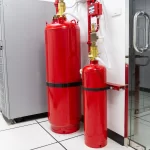Reserves in your business checking account are important because they give you a safety net for unforeseen expenses and help you weather unexpected business conditions. Having some cash set aside for emergencies will allow you to pay bills, cover staff costs, and purchase equipment and supplies. It will also help you invest in your business and expand. Business experts recommend that you begin looking for funding when your business is stable so you can shop around for the best deal.
As a business owner, your cash reserves are the most important part of your business. This is why it’s so important to set aside a portion of your monthly cash reserves in interest-bearing bank accounts. This will help you borrow from your business’s reserve account when you need to, and it will also boost your reserves by earning interest. However, you don’t want to put all of your eggs in one basket. If you’re unsure of whether or not you need a reserve, talk to a commercial banker.
Business owners often have the opportunity to buy new equipment or invest in new processes. These new purchases are often unanticipated and increase short-term expenses. Having the necessary cash reserves will allow you to make these purchases and expand your business in unforeseen ways. Additionally, having a cash reserve on hand will give you the flexibility to make sound decisions.
Whether you choose to use your reserves in your business checking account depends on the type of business you operate. Some businesses are year-round, while others are seasonal and may have trouble building up cash reserves. If your business is growing rapidly, it will need more reserves to meet payroll commitments or make large purchases.
Reserve management is not an easy task for a business owner, but with the help of an adviser, you can make informed decisions. You should consider your budget and projected cash flow to decide how much money to set aside for your reserve. Make sure that you take into account all business expenses, including overhead costs such as rent, utilities, and insurance. Since you have to pay these costs no matter how much money you earn, having a reserve can help you meet these expenses and still have some left over in case the business encounters a rough patch.
Reserves in your business checking account are important for small business owners because they help you manage your working capital. Small businesses often lack an accountant and must manage their finances on their own. Therefore, a business checking account with reserve features can help business owners organize their finances and come up with a long-term financial strategy.
Businesses must prepare for the unexpected. Disasters and economic recessions can hit your bakery business without warning. Creating cash reserves is crucial for bakery owners. It is important to treat your cash reserves as a non-negotiable business expense. It is best to set aside a certain portion of your monthly income for reserves. This way, you’ll have a regular reminder to stay accountable for your business’s reserves.








